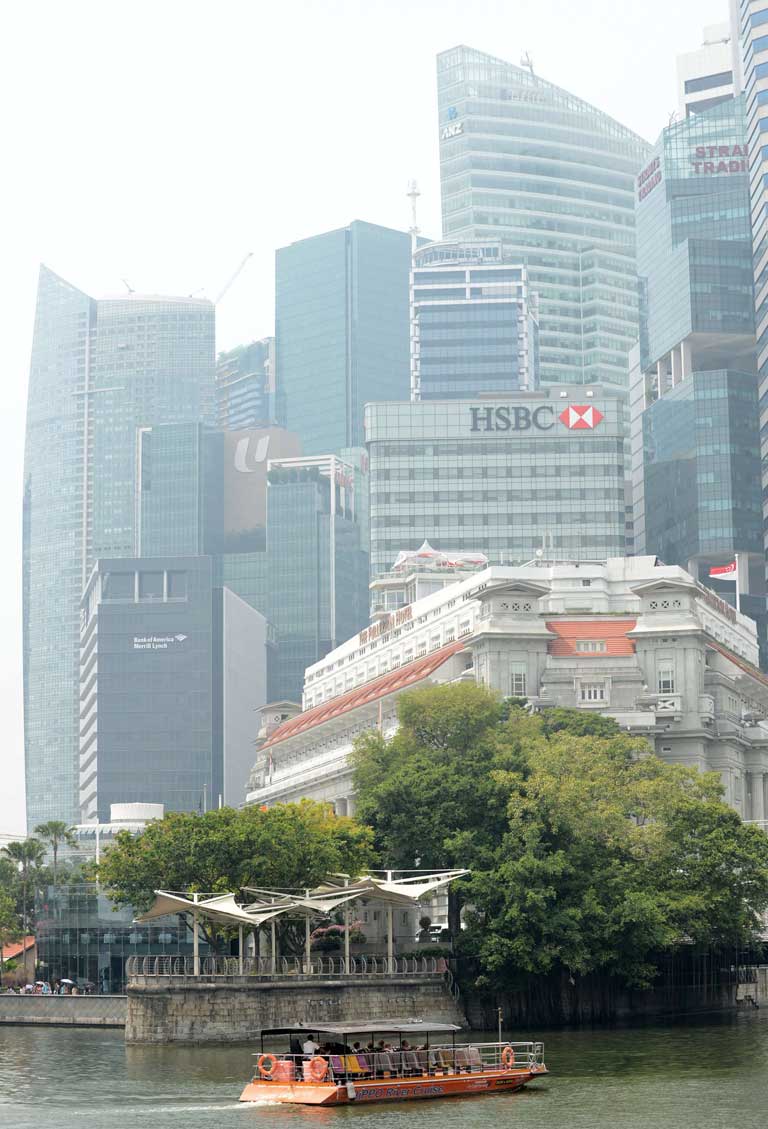Raffles and the Golden Opportunity, By Victoria Glendinning
How a lowly clerk became a reforming governor – and founded a city-state that booms today

When I moved to London in 1999, I was surprised to see two statues which honoured pioneers of the British Empire, remembered quite differently in the territories they had helped conquer. One was of Robert Clive, near the Foreign Office; the other of Charles Napier, at Trafalgar Square. In the former colonies the two are remembered for the guile and cunning with which they subjugated their rivals.
But Thomas Stamford Raffles's story is rather different. When I lived in Singapore, Raffles was omnipresent: his name so ubiquitous that it would seem that he had secured Singapore's independence, when he too laid the foundation stone of British rule on that island. Yet in Singapore Raffles is remembered fondly: a major shopping mall, a chunk of the central business district, the city's toniest hotel, a leading school and a college, a hospital, roads, a golf club: all have carried his name.
In 1819, Raffles decided to set up a new town in Singapore, and over time that malarial swamp of a fishing village became an entrepot at the crossroads of booming economies. If founding Singapore were all he had achieved, Raffles would still have been remembered as a great man. But as Victoria Glendinning's easy-paced, absorbing biography shows, he also governed Java and Bencoolen, and set up the London Zoo. He treated the sultans of Malaya and Indonesia with respect. He had a reformer's zeal, outlawing cockfights, restricting trade in opium, and abolishing slavery and forced labour.
Raffles was not born into wealth. Glendinning paints a vivid portrait of life in pre-Dickensian London, of a child of a modest family who at 14 joined the East India Company as a clerk. There, he displayed "a flaring vitality". As a clerk, he copied vast amounts of documents and volunteered to go east when the opportunity arose a decade later. Once in Penang, he learned Malay. Lord Minto, then Governor-General of India, liked what he saw in the young man, and sent him to Malacca.
He led the British takeover of Java. His other reforms – the banning of slavery and refusal to import opium – hardly endeared him to the powers-that-be. But he did not budge from his principles, repeating such reforms lin Bencoolen and Singapore.
In spite of his achievements, he died a broken man, forced to defend his reputation against attacks. What remained of his wealth disappeared at his death, settling claims made by the East India Company. Bean-counters among his mean-spirited employers presented him with a bill exceeding £22,000 for a range of alleged financial misdemeanours. Raffles's response was dignified, and he explained the losses attributed to him.
Singapore's post-independence prosperity owes much to its pragmatic, export-oriented government, which capitalised on opportunities during the Cold War years and the Asian boom. But it could do so because one man saw the potential its natural harbour offered nearly two centuries ago. Little wonder they won't run out of landmarks to name after him in Singapore.
Subscribe to Independent Premium to bookmark this article
Want to bookmark your favourite articles and stories to read or reference later? Start your Independent Premium subscription today.

Join our commenting forum
Join thought-provoking conversations, follow other Independent readers and see their replies